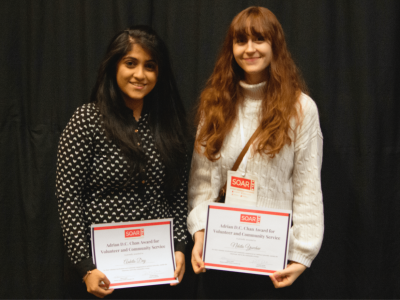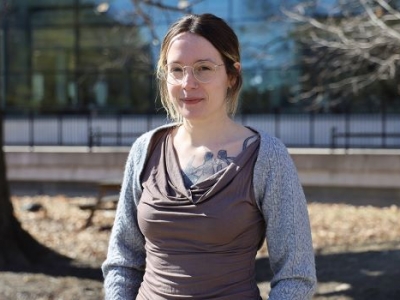 Last week, the English Department re-launched its Production of Literature Lecture series with Dr. Alan Galey, assistant professor in the Faculty of Information at the University of Toronto.
Last week, the English Department re-launched its Production of Literature Lecture series with Dr. Alan Galey, assistant professor in the Faculty of Information at the University of Toronto.
PhD Candidate Chris Doody attended the event on Friday night entitled: The Dark Basement of the Digital Humanities: Shakespeare and the Prehistory of the New Media Prototype.
He had this to say about the lecture.
The lecture series is a yearly event that brings internationally recognized scholars to give a talk, which addresses major issues and new directions in the field of the Production of Literature. Galey ran a seminar on Thursday for English faculty and graduate students, and presented a lecture on Friday afternoon open to the general public.
In his talk on Friday, Galey discussed the way presentations of new media prototypes use Shakespearean references, alongside the idea that, although digital humanities is a relatively new academic field, it is connected to a long history of new media prototype presentations. Dr. Galey concluded by arguing for the usefulness of small-scale prototype projects, built cheaply and with little labour.
Galey connected all three of these ideas by examining a visually complex edition of one of Shakespeare’s plays, published in 1883 and edited by Teena Rochfort-Smith. This edition of Hamlet was a prototype of a parallel edition of the play that printed four versions of the play in columns spanning two pages. This format would allow the reader to easily compare the changes between all four variants. As the edition was determined to be too difficult to print in an era where printers still had to set print by hand, it never left the prototype stage. Today, only one copy still exists. Galey argued that although this edition is only a prototype (and unfinished at that), it is the most complex edition of Hamlet ever created. As such, it offers a valuable lesson to contemporary digital humanists, by demonstrating that small-scale prototypes can offer interesting insight, without requiring the massive allocation of labour and finance that large-scale projects require.
Galey concluded by demonstrating a small-scale digital humanities project that he is currently working on: Visualizing Variation. This website is a library of free, open-source visualization prototypes, which he hopes scholars and students will use in their own digital projects.
Thursday, November 29, 2012 in Grad Student blogs, News
Share: Twitter, Facebook




